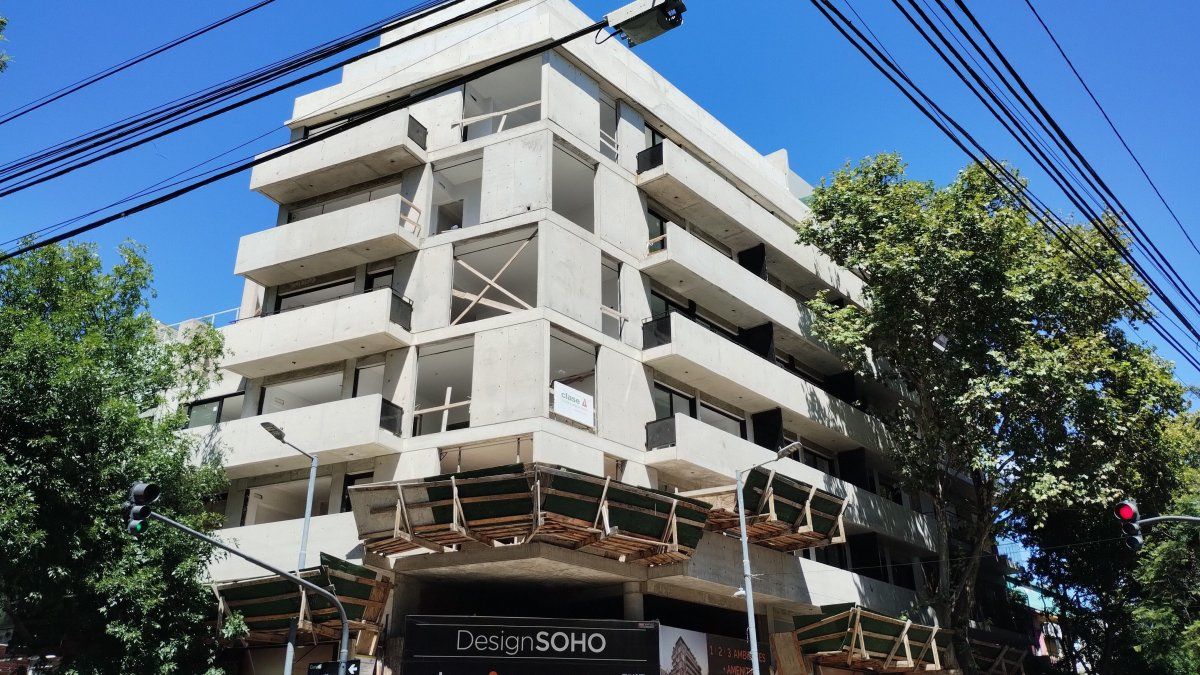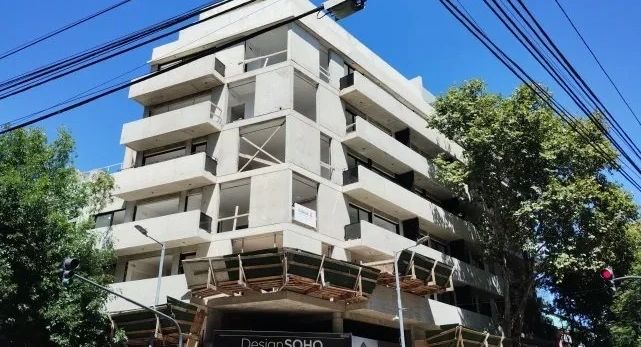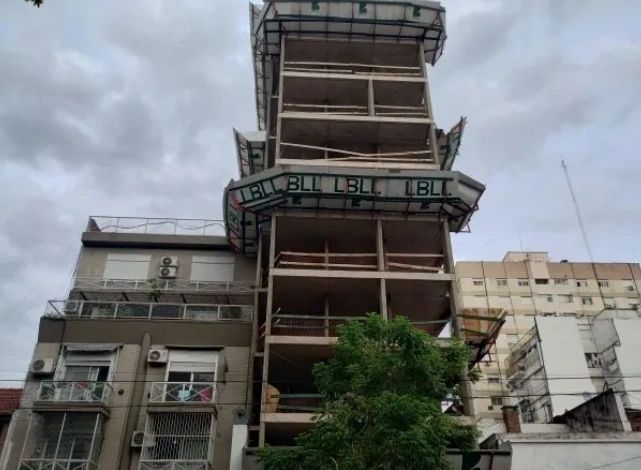BuySellBA
Administrator
Divisible mortgages: what regulations streamline procedures to promote access to housing? - Ambito Financiero

Source:

 www.ambito.com
www.ambito.com
July 21, 2025
By Jose Luis Cieri
The new framework for purchasing a well unit with registered tickets was made official, a regulation that will provide greater legal certainty.

The new regulations seek to reactivate mortgage lending and ensure access to housing with greater transparency.
The Argentine real estate market is experiencing a shift with the implementation of new financing and legal security tools that will allow users to purchase units under construction through divisible or future mortgages , formalized through Provision 10/2025 of the Ministry of Justice published in the Official Gazette and Joint Resolution 2/2025 of the Ministries of Economy and Justice. These regulations regulate Decree of Necessity and Urgency (DNU) 1017/2024 and introduce changes in the way properties are acquired, especially those under construction.
The focus of these measures is on revitalizing mortgage lending, protecting buyers of "under construction" units , and improving transparency in real estate development projects.
The buyer, protagonist of the new era of credit
One of the most notable changes brought about by this regulation is the paradigm shift in access to financing. Bernardo Mihura de Estrada , director of the Real Estate Registry (RPI) of Buenos Aires City, explained that Decree 1017/2024 provided multiple options for financing new construction, but with the buyer as the primary focus.
"Now the buyer can choose the project they like best and finance it with the bank that offers the best terms; they no longer depend on what the seller imposes," he noted.
This possibility represents a crucial advance. Until now, financing for properties under construction often depended exclusively on the developer. With the new regulations, buyers have access to bank loans secured by a future unit . This is achieved through the divisible mortgage and the registration of banknotes , which facilitates the incorporation of more financial players into the system and opens the door to greater competition among banking institutions, which directly benefits those seeking to purchase a home.
This resolves the limitation of financing early-stage projects. Now, the buyer of a unit under construction or a lot can mortgage their specific portion, which provides predictability for developers and expands demand. Regulations allow for this to be included in the initial deed, providing for future division when subdividing the property, or for dividing an existing mortgage when transferring units. The deed must detail the project and the individual units.
The requirements for establishing these mortgages include: ownership of the property free of liens or with liens recognized by the lender, the submission of an approved urban development project that determines the subdivision method and the characteristics of the future units or lots, and the parties' agreement to divide the loan and the mortgage guarantee. In addition, technical documentation such as survey plans, land registry certificates, and tax debt certificates are required.
Mihura de Estrada explained that, while the Civil and Commercial Code already authorized the registration of purchase and sale agreements, this regulation goes further. To register purchase and sale agreements for planned units, the project must first be registered with the Real Estate Registry. Developers can then register their agreements with the RPI (Regional Property Registry) or with private entities authorized by the CNV (National Commission for Real Estate).
He added that the regulations valued the role of the notary in drafting, certifying, ensuring legality, and registering the ticket. The Association of Notaries of Buenos Aires City played a key role in this collaborative effort.
Before registering a building permit, the developer must register the "building project" with the RPI (Regional Property Registry). This involves submitting plans, pre-approvals, technical documentation, and a commitment to horizontal property ownership. This legality check aims to prevent the commercialization of unviable projects.

With this measure and once banks can grant loans to buy homes in the pit, a sector currently affected by the rising costs of building will be revitalized.
Mihura de Estrada emphasized the importance of this process: "This process, along with the review of legality and viability that must be carried out at this time, is very important. We are not willing to validate, through registration, projects that lack any semblance of seriousness."
The registration of these tickets expires after five years if not renewed, preventing the system from being extended indefinitely without registration and preserving legal security. Furthermore, these registered tickets can be used as collateral or real guarantees, facilitating access to credit and financing of the price balance. Each ticket is recorded in a special folio, reflecting assignments, liens, embargoes, or other restrictions.
"The new feature incorporated by the Decree and its regulations is that upon completion of construction by the surface owner, the compensation owed by the bare owner to the surface owner may consist of the transfer of full and perfect ownership of the units built by the surface owner," stated Mihura de Estrada.
This tool is key for various developments, especially those where the State provides the land. Deeds must include plans or sketches by licensed professionals that delineate the scope of the right.
The lender must agree to the division of the loan and release the original owner from the debts assumed by each buyer. The mortgage on units with no outstanding balance can also be released.
www.buysellba.com

Source:

Hipotecas divisibles: qué normativa permite agilizar trámites para impulsar acceso a la vivienda
Se oficializó el nuevo marco para poder comprar una unidad en pozo con boletos registrados, reglamentación que brindará mayor seguridad jurídica.
July 21, 2025
By Jose Luis Cieri
The new framework for purchasing a well unit with registered tickets was made official, a regulation that will provide greater legal certainty.

The new regulations seek to reactivate mortgage lending and ensure access to housing with greater transparency.
The Argentine real estate market is experiencing a shift with the implementation of new financing and legal security tools that will allow users to purchase units under construction through divisible or future mortgages , formalized through Provision 10/2025 of the Ministry of Justice published in the Official Gazette and Joint Resolution 2/2025 of the Ministries of Economy and Justice. These regulations regulate Decree of Necessity and Urgency (DNU) 1017/2024 and introduce changes in the way properties are acquired, especially those under construction.
The focus of these measures is on revitalizing mortgage lending, protecting buyers of "under construction" units , and improving transparency in real estate development projects.
The buyer, protagonist of the new era of credit
One of the most notable changes brought about by this regulation is the paradigm shift in access to financing. Bernardo Mihura de Estrada , director of the Real Estate Registry (RPI) of Buenos Aires City, explained that Decree 1017/2024 provided multiple options for financing new construction, but with the buyer as the primary focus.
"Now the buyer can choose the project they like best and finance it with the bank that offers the best terms; they no longer depend on what the seller imposes," he noted.
This possibility represents a crucial advance. Until now, financing for properties under construction often depended exclusively on the developer. With the new regulations, buyers have access to bank loans secured by a future unit . This is achieved through the divisible mortgage and the registration of banknotes , which facilitates the incorporation of more financial players into the system and opens the door to greater competition among banking institutions, which directly benefits those seeking to purchase a home.
A renewed model for the 21st century
The concept of divisible mortgages is not entirely new; in fact, it is inspired by a model used by the National Mortgage Bank in the 1960s (Law 18,307). However, its current application is adapted to the current Civil and Commercial Code of the Nation. Essentially, these mortgages allow a developer to establish a general mortgage guarantee on the land or the entire project. Once the units are subdivided, that mortgage is divided into fractions, assigning the corresponding balance to each buyer, who then assumes the individual debt with the bank.This resolves the limitation of financing early-stage projects. Now, the buyer of a unit under construction or a lot can mortgage their specific portion, which provides predictability for developers and expands demand. Regulations allow for this to be included in the initial deed, providing for future division when subdividing the property, or for dividing an existing mortgage when transferring units. The deed must detail the project and the individual units.
The requirements for establishing these mortgages include: ownership of the property free of liens or with liens recognized by the lender, the submission of an approved urban development project that determines the subdivision method and the characteristics of the future units or lots, and the parties' agreement to divide the loan and the mortgage guarantee. In addition, technical documentation such as survey plans, land registry certificates, and tax debt certificates are required.
Ticket Registration: Greater security for operations
Another key innovation is the registration of purchase and sale tickets . This tool provides an additional layer of protection for buyers who, while not yet holding the title, have already made payments for a unit. The new system allows these tickets to be registered both in the Real Estate Registry (RPI) and in private entities authorized by the National Securities Commission (CNV) .Mihura de Estrada explained that, while the Civil and Commercial Code already authorized the registration of purchase and sale agreements, this regulation goes further. To register purchase and sale agreements for planned units, the project must first be registered with the Real Estate Registry. Developers can then register their agreements with the RPI (Regional Property Registry) or with private entities authorized by the CNV (National Commission for Real Estate).
He added that the regulations valued the role of the notary in drafting, certifying, ensuring legality, and registering the ticket. The Association of Notaries of Buenos Aires City played a key role in this collaborative effort.
Before registering a building permit, the developer must register the "building project" with the RPI (Regional Property Registry). This involves submitting plans, pre-approvals, technical documentation, and a commitment to horizontal property ownership. This legality check aims to prevent the commercialization of unviable projects.

With this measure and once banks can grant loans to buy homes in the pit, a sector currently affected by the rising costs of building will be revitalized.
Mihura de Estrada emphasized the importance of this process: "This process, along with the review of legality and viability that must be carried out at this time, is very important. We are not willing to validate, through registration, projects that lack any semblance of seriousness."
The registration of these tickets expires after five years if not renewed, preventing the system from being extended indefinitely without registration and preserving legal security. Furthermore, these registered tickets can be used as collateral or real guarantees, facilitating access to credit and financing of the price balance. Each ticket is recorded in a special folio, reflecting assignments, liens, embargoes, or other restrictions.
Mortgage on Surface Rights
The regulations also govern the possibility of establishing mortgages on real estate rights . This allows one to build on land without owning it and use that right as mortgage security."The new feature incorporated by the Decree and its regulations is that upon completion of construction by the surface owner, the compensation owed by the bare owner to the surface owner may consist of the transfer of full and perfect ownership of the units built by the surface owner," stated Mihura de Estrada.
This tool is key for various developments, especially those where the State provides the land. Deeds must include plans or sketches by licensed professionals that delineate the scope of the right.
Subdivision and Transfer Procedure
When subdividing the property and transferring units or lots, the mortgage loan will be divided into parts linked to each subdivision. The deed must record the outstanding balance of each purchaser and their payment terms.The lender must agree to the division of the loan and release the original owner from the debts assumed by each buyer. The mortgage on units with no outstanding balance can also be released.
www.buysellba.com

